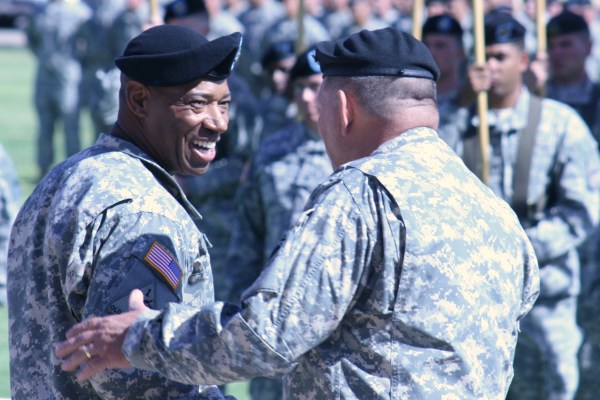How To Get The Most Out Of Your Veterans Network
Most people have heard of the game “Six Degrees of Kevin Bacon.” The premise is simple: You try to find...

Most people have heard of the game “Six Degrees of Kevin Bacon.” The premise is simple: You try to find how many connections you are away from the popular movie star, Kevin Bacon. You may not know him directly (most of us don’t), but you may know someone, who knows someone, who knows someone, who knows someone, who knows someone, who knows Kevin Bacon. This is what is meant by “six degrees of separation” — you are connected to any other person on the planet by no more than six people. This phenomenon persists for almost anybody, and is a principle foundation of network theory.
Network theory at its core can be applied to social networks. Understanding network theory can help you leverage your social networks to broaden your social and professional circles and even find employment.
To start, try not to look at begin your next career as simply looking for any job. “Looking for a job” implies that the potential employer has the control. Rather, shift your mindset to “looking for work,” specifically work that involves your skillset. A job is the employer giving you a job. Work is you providing value to a potential employer. The difference is subtle, but powerful.
Second, understand that the majority of quality work available is not garnered by just a well-polished resume, or a great cover letter. These things are nice, but the best way to find work that is fulfilling and tailored to your experience is to find someone who is in a position to influence whether or not you get an interview, or possibly even a decision-maker in an organization where you want to hang your hat.
This brings us back to network theory. At its simplest, you are connected to everybody on the planet through a series of ties. There are strong ties and weak ties. In general, the further you move out from your core group of contacts (we’ll call them close friends and family), the weaker your ties become. This is where it gets interesting.
Paradoxically, it is not your friends and family who have the greatest chance of providing you with work opportunities. Connections outside your immediate circle tend to be the best resources for those seeking work to find it. This is not to say you want to see if Kevin Bacon can get you a job; rather, seek out connections who are one or two “nodes” away from you.
A veteran’s network is the ultimate resource in for these types of connections. Folks in the military usually understand much of what goes into making you competent in your area. And the strength of the common bond allows veterans to move out more than one or two nodes, as there is less information lost as you move out.
What does all of this mean in plain English? Reach out to your network. Find a place you want to work, and look for decision-makers there who are veterans, or people in your network who have a connection to that organization. LinkedIn is great for this. If you do not have a premium membership as a jobseeker, then get one. Then utilize your network to start introducing yourself. You can do this on Facebook and maybe even Twitter as well. Don’t be afraid to even go old school: Pick up the phone, dial up some buddies and start letting them know you are looking for work. A good way to find out who your friends know is to simply say, “Who do you know in…”.
This is where you can start. There are, of course, more complicated things you can do. You can scrape the web looking using people you know and find out how they are connected to the people you want to get in touch with. You can look at Google Trends to find out which career fields are being talked about, which fields are looking for your skillset. But simply leveraging your military contacts can help tremendously, and may be all you need to get your career going.
And remember – these people in your network want to help you. They want to see you succeed. Because when you succeed, you contribute to the a greater circle of successful veterans who understand the concept of “One team, one fight.”
Michael Kothakota is a Tillman Military Scholar and Managing Partner of DataTactix, a data analytics firm assisting veteran services organizations and veteran-owned businesses with gathering and optimizing their data. He has started several companies and is also CEO of WolfBridge FInancial Corporation.